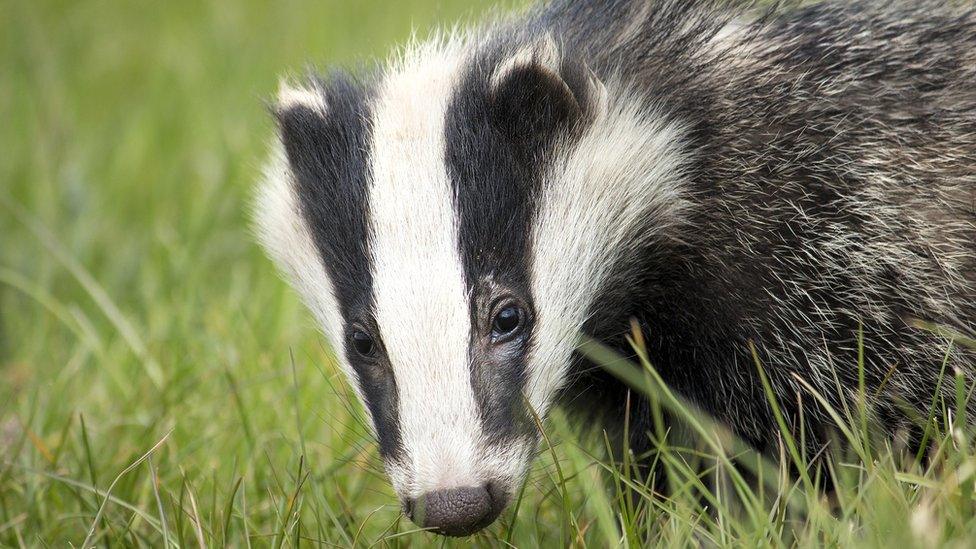Bovine TB: 'No compensation cuts before badger cull plan'
- Published
- comments
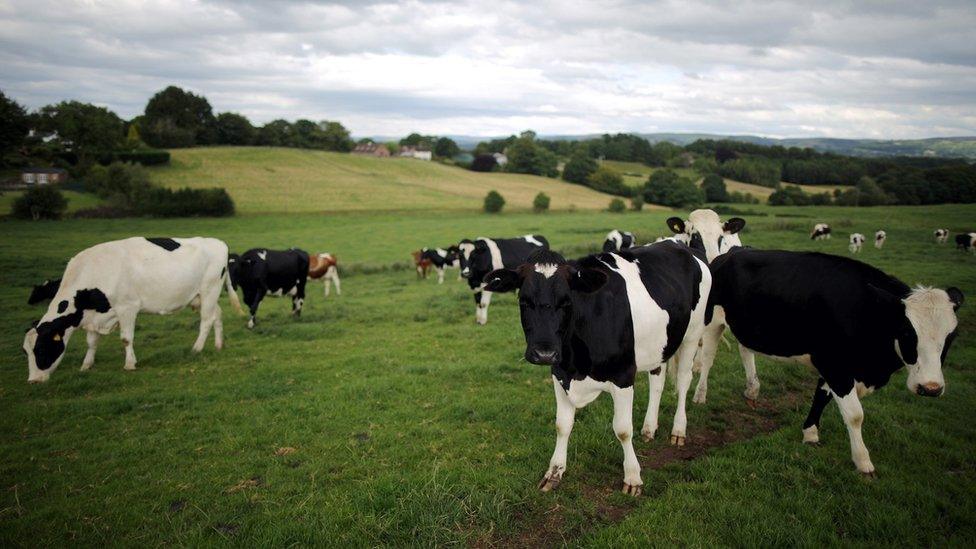
Badgers and cattle both suffer from the same strain of TB
Farmers will not accept compensation cuts to reduce the bill for a cattle disease until there are "meaningful" plans to cull badgers.
The TB eradication partnership, a government advisory group, said there was already a cost to farmers in time, stress and lost production.
It follows news that civil servants had rejected the group's plan for reducing the compensation bill for bovine TB.
They rejected the plan because it did not go far enough.
Officials also decided to offer two options to a future minister on a potential badger cull, despite the fact the advisory group had favoured one over the other.
Badgers and cattle share similar strains of the disease and experts say there is cross-infection, though the extent of it and the path of disease transfer is debated.
'Unlikely to get buy-in'
Bovine TB costs £40m a year in testing and compensation for farmers whose cattle have to be destroyed. At present, they get the market value of any animals sent for slaughter.
The government wants to share the cost by asking farmers to accept compensation cuts.
Beef farmer Adrian Patterson, who sits on the TB eradication partnership advisory group, said there would have to be realistic proposals for dealing with the disease in wildlife before farmers would contemplate compensation cuts.
"It's very unlikely that you're going to get buy-in from the industry and farming in particular if there is not intervention in a meaningful way to limiting and eradicating the disease in wildlife," he said.
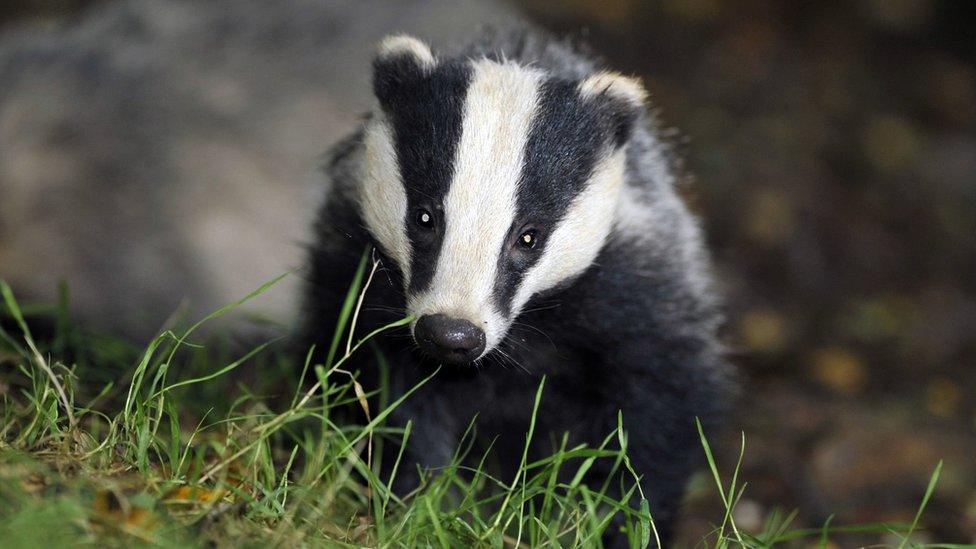
Officials decided to offer two options to a future minister on a potential badger cull
The advisory group recommended the government implement a similar badger cull to that in the Republic of Ireland.
There, badgers in disease hotspots were culled to reduce the population density and the remaining disease-free animals were vaccinated.
This approach is controversial because it means both healthy and diseased badgers - a protected species - are destroyed.
That option will be costed by officials for consideration by a future Stormont agriculture minister.
But they will also offer an alternative proposal that will see badgers trapped and tested, with only those definitely having the disease being destroyed.
The chair of the advisory group, Sean Hogan, said he would have preferred if the Republic of Ireland-style cull had been adopted and believed it would cut disease incidence "quicker and better" than the alternative approach.
He said there were statistics and evidence supporting the approach in the Republic, while trapping and testing was a "theoretical model".
"We took the view that in a situation like this there is no point in trying to reinvent the wheel.
"If we're looking at a process that works and delivers results, and it does it in a cost-effective way and over an acceptable period of time, then we took the view that was the best way to go forward," he said.
The advisory group includes a seat for a representative of the wildlife conservation community, but it remains unfilled.
- Published11 September 2019
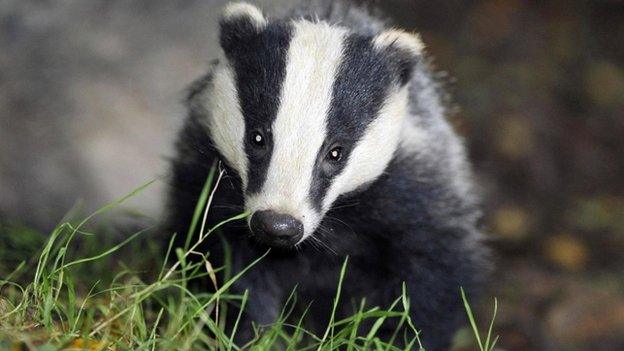
- Published9 September 2019
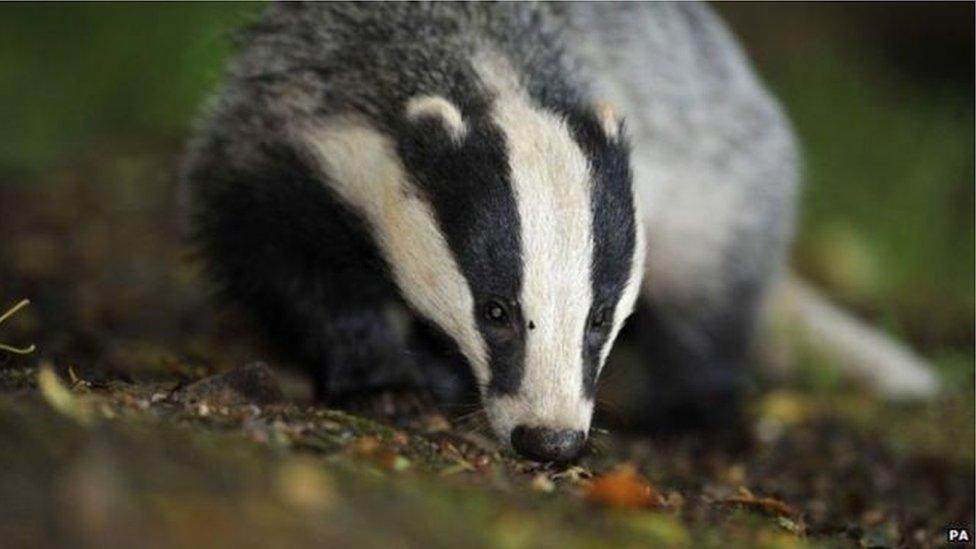
- Published20 March 2019
